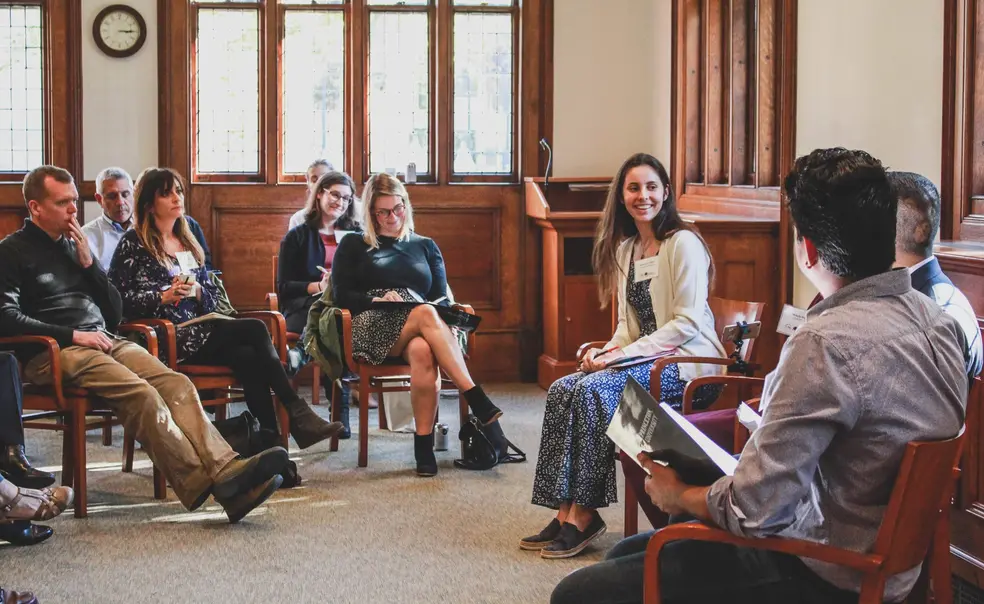Katherine Clifton ’15 Is Listening to the Stories of Refugees
‘Ultimately it reinforces my faith in humanity’
Not everyone listens carefully to other people these days — but Katherine Clifton ’15 does. She’s spent the past few years helping to collect about 180 recordings of global migrants telling their stories for a project through Princeton’s Office of Religious Life (ORL). The result, a treasure trove of voices and experiences, is about to be officially launched online June 21, timed with the United Nations’ World Refugee Day.
“I just sense a deficit in our collective willingness to listen deeply and graciously to one another right now,” she says. “And the work I do with oral histories, I’m continually reminded of how rewarding and humbling it is when we lean into conversations with folks that have vastly different perspectives.”
Clifton is the lead coordinator on the Religion & Resettlement Oral History Project. She trained and worked with about 70 undergrads who conducted most of the interviews; alumni researchers contributed as well. Funded by the Henry Luce Foundation and co-sponsored by the U.S. Conference of Catholic Bishops, it focuses on the religious and spiritual lives of people resettled in the United States.
Clifton herself has followed a path around the world, growing up in Honolulu before taking a gap year in Serbia through the University’s Bridge Year Program and then heading to Princeton. Recently she took a trip back to Hawaii and said she was again reminded that “a real friendliness emanates from the land, from the water, from the flora and fauna, from the people there.” It shaped her sense of compassion, she says, and the search for how to spend her life.
She studied literature and theater at Princeton, then went back to Serbia, working with refugee camps and aid centers on a Dale Fellowship. On a Rhodes Scholarship, she earned a master’s degree in forced migration and public policy at Oxford before landing back at Princeton.
The website that houses the project has three parts: the oral histories; a map of about 1,800 organizations nationwide that work with refugees; and curricula for secondary-school teachers to have their students use the oral histories for research. The team is still adding information and resources; the grant ends in about a year.
Clifton’s not sure what her future holds — except for her upcoming wedding. As for her work, she plans to keep her eyes open. “A blessing of my life is I seem to have bottomless curiosity,” she says.
She’ll bring with her takeaways from the many refugees who told their stories. It’s hard to draw broad conclusions, Clifton says, because their experiences vary so widely. But one is certainly the role of faith. Refugees often lose nearly all they have when they leave their homes, but faith is something that can’t be taken away, Clifton says. Yet not all migrants are religious or even hold onto their religion in their new homes.
Another is the deficiency of the language used by most media, who often treat migrants as victims even though the truth is far more complex. It’s a privilege to be entrusted with someone’s life story, Clifton says, and hearing it challenges our own prejudices.
“So a big hope for this project is that through the archive and the learning materials, and then through the resource map, people appreciate the rich and varied experiences of refugees in their own words,” Clifton says, “and that those stories encourage them to be more welcoming and generous to newcomers of all kinds.”










No responses yet